Varun Churan
₹100
Varun, also known as Crataeva nurvala, is a tree that is commonly used in Ayurvedic medicine for its medicinal properties. The bark of the Varun tree is particularly useful in treating urinary tract infections (UTIs) and kidney stones.
The bark of the Varun tree has diuretic properties, which means it can help increase the production of urine and improve the function of the urinary tract. This can help flush out toxins and bacteria that may be causing a UTI or kidney stone.
- Delivery & Return
Delivery
We ship to all over the world. All orders are shipped with a UPS tracking number. Always free shipping for orders over 1000. During sale periods and promotions the delivery time may be longer than normal.Return
Adarsh Ayurvedic Pharmacy will accept exchanges and returns of undamaged box within 30 days of the date of purchase (14 days during the sales period), on presentation of the original till receipt at any store where the corresponding collection is available within the country of purchase. Your return will usually be processed within a week to a week and a half. We’ll send you a Return Notification email to notify you once the return has been completed. Please allow 1-3 business days for refunds to be received to the original form of payment once the return has been processed.Help
Give us a shout if you have any other questions and/or concerns. Email: aapdeepak.hdr@gmail.com Phone: 9897902760
Varun, also known as Crataeva nurvala, is a tree that is commonly used in Ayurvedic medicine for its medicinal properties. The bark of the Varun tree is particularly useful in treating urinary tract infections (UTIs) and kidney stones.
The bark of the Varun tree has diuretic properties, which means it can help increase the production of urine and improve the function of the urinary tract. This can help flush out toxins and bacteria that may be causing a UTI or kidney stone.
To use Varun bark, it is typically ground into a powder and consumed orally. It can also be added to hot water to make a tea. Varun bark is often used in combination with other herbs to treat UTIs and kidney stones.
The bark of the Varun tree has diuretic properties, which means it can help increase the production of urine and improve the function of the urinary tract. This can help flush out toxins and bacteria that may be causing a UTI or kidney stone.
Buy 10 get one free.
Selflife: 3 Years
| Weight | 250 g |
|---|---|
| Dimensions | 14 × 12.5 × 8.5 cm |
| Weight | 100gm |
Based on 0 reviews
|
|
|
0% |
|
|
|
0% |
|
|
|
0% |
|
|
|
0% |
|
|
|
0% |
Only logged in customers who have purchased this product may leave a review.
Related Products
Varunadi Kwath is typically prepared by boiling the herbal mixture in water and then straining the decoction before consuming. It is important to note that like all herbal remedies, Varunadi Kwath should be taken under the guidance of a qualified healthcare professional, as it may interact with certain medications or have potential side effects in some individuals.
Varunadi Kwath is an Ayurvedic herbal decoction made from a blend of several herbs, including Varuna (Crataeva nurvala), Gokshura (Tribulus terrestris), and Punarnava (Boerhavia diffusa).
Astak Loh Mandur is believed to work by improving the production of red blood cells and increasing the level of hemoglobin in the blood. It is also thought to have a detoxifying effect on the liver and improve liver function, thereby improving overall health and well-being.
As with any Ayurvedic medicine, it is essential to consult a qualified Ayurvedic practitioner or healthcare professional before using Astak Loh Mandur to ensure its safe and effective use. The dosage and duration of treatment may vary depending on the individual’s condition and other factors.
Supari Pak is a herbal Ayurvedic formulation that is commonly used in traditional Indian medicine. It is a sweet and spicy powder made from various herbs and spices, with betel nut (supari in Hindi) being the primary ingredient.
Some of the key ingredients in Supari Pak include betel nut, cardamom, cinnamon, clove, ginger, and honey. These ingredients are believed to have a range of health benefits, such as improving digestion, reducing inflammation, boosting the immune system, and promoting healthy reproductive function.
Supari Pak is typically taken in small doses, usually one to two teaspoons a day.
Basant Kusumakar Ras is believed to work by regulating blood sugar levels, improving digestion, and strengthening the immune system. It is also used to treat urinary tract infections, liver disorders, and pancreatitis. However, it is important to note that Basant Kusumakar Ras should only be taken under the guidance of a qualified Ayurvedic practitioner, as it may have some side effects and interactions with other medications.
It is a herbo-mineral formulation that contains various natural ingredients, including Swarna Bhasma (gold ash), Rajat Bhasma (silver ash), Vanga Bhasma (tin ash), and other herbs such as Haritaki (Terminalia chebula), Bibhitaki (Terminalia bellirica), Amalaki (Emblica officinalis), Shuddha Shilajit (purified asphaltum), and Guggulu (Commiphora mukul).
Swadukantak is typically taken in tablet form, and the recommended dosage and duration of use can vary based on the individual’s specific health needs and the guidance of a qualified healthcare professional. It is important to note that like all herbal remedies, Swadukantak may interact with certain medications or have potential side effects in some individuals.
Swadukantak is an Ayurvedic herbal formula used to support healthy digestion and promote overall gastrointestinal health. It is a blend of several herbs, including Chitrak (Plumbago zeylanica), Pippali (Piper longum), and Ajwain (Trachyspermum ammi).
Jatyadi tail is typically applied topically to the affected area and gently massaged into the skin. The frequency and duration of use can vary based on individual needs and the guidance of a qualified healthcare professional. It is important to note that like all herbal remedies, Jatyadi tail may cause allergic reactions or other side effects in some individuals, and should be used with caution.
Jatyadi tail is an Ayurvedic herbal oil that is made from a blend of several herbs, including Jatiphal (Myristica fragrans), Haridra (Turmeric), and Neem (Azadirachta indica). This oil is commonly used in Ayurvedic medicine for the treatment of various skin disorders, such as cuts, wounds, burns, and other skin irritations.
Rasanasaptak Kwath is an Ayurvedic herbal decoction made from a combination of seven herbs, including Ashwagandha (Withania somnifera), Shatavari (Asparagus racemosus), and Guduchi (Tinospora cordifolia).
According to Ayurvedic principles, Rasanasaptak Kwath is believed to help support overall health and well-being by promoting healthy digestion, improving immunity, and reducing inflammation in the body. It is commonly used to help manage symptoms associated with arthritis, joint pain, and other inflammatory conditions.
Rasanasaptak Kwath is typically prepared by boiling the herbal mixture in water and then straining the decoction before consuming. It is important to note that like all herbal remedies, Rasanasaptak Kwath should be taken under the guidance of a qualified healthcare professional, as it may interact with certain medications or have potential side effects in some individuals.
Dashmool Ghan is typically taken orally and the dosage and duration of treatment may vary depending on the individual’s needs and the practitioner’s recommendations. It is important to consult with a qualified Ayurvedic practitioner before using Dashmool Ghan, especially if you have a history of medical conditions or are currently taking any medications.
Additionally, it is important to be aware of potential side effects and contraindications before using any herbal supplement. Dashmool Ghan is believed to have several health benefits, particularly for the respiratory and nervous systems. The primary active compounds in Dashmool Ghan include alkaloids, flavonoids, and triterpenoids, which are believed to have anti-inflammatory, analgesic, and antioxidant properties. Dashmool Ghan is commonly used in Ayurvedic medicine for reducing inflammation, pain, and anxiety, and promoting overall health and wellness.
Haridrakhand (also spelled as Haridra Khanda) is an Ayurvedic herbal formulation that is commonly used in traditional Indian medicine. It is a powdered mixture of various herbs and spices, with turmeric (haridra in Sanskrit) being the primary ingredient.
Some of the key ingredients in Haridrakhand include turmeric, ginger, black pepper, cardamom, cinnamon, and honey. These ingredients are believed to have a range of health benefits, such as reducing inflammation, improving digestion, boosting the immune system, and promoting healthy skin.
Ashwagandha Ghan is typically taken orally in liquid form, and the dosage and duration of treatment may vary depending on the individual’s needs and the practitioner’s recommendations. It is important to consult with a qualified Ayurvedic practitioner before using Ashwagandha Ghan, especially if you have a history of medical conditions or are currently taking any medications. Additionally, it is important to be aware of potential side effects and contraindications before using any herbal supplement.
The primary active compounds in Ashwagandha Ghan include withanolides, alkaloids, and flavonoids, which are believed to have adaptogenic, anti-inflammatory, and antioxidant properties. Ashwagandha Ghan is commonly used in Ayurvedic medicine for reducing stress and anxiety, supporting healthy immune function, and promoting overall vitality and wellness.
Chyawanprash (also spelled as “Chyavanprash” or “Chavanprash”) is a traditional Ayurvedic herbal formulation that has been used for thousands of years in India. It is a jam-like paste made from a variety of herbs, fruits, and spices that are mixed with honey, ghee, and sugar.
Some of the key ingredients in Chyawanprash include amla (Indian gooseberry), ashwagandha, guduchi, licorice, and shatavari. These ingredients are believed to have a range of health benefits, such as improving cognitive function, reducing inflammation, and promoting healthy aging.
Dashmool Kwath is an Ayurvedic herbal decoction made from a blend of ten herbs, which include Bilva (Aegle marmelos), Agnimantha (Premna integrifolia), and Shyonaka (Oroxylum indicum). The name Dashmool means ‘ten roots’ or ‘ten herbs,’ and the combination of these herbs is believed to have a synergistic effect and offer a wide range of potential health benefits.
According to Ayurvedic principles, Dashmool Kwath is believed to help balance the three doshas – Vata, Pitta, and Kapha, and promote overall health and well-being. It is commonly used to support the respiratory system, improve digestion, and relieve stress and anxiety.



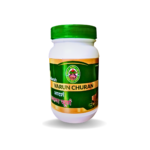
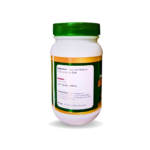








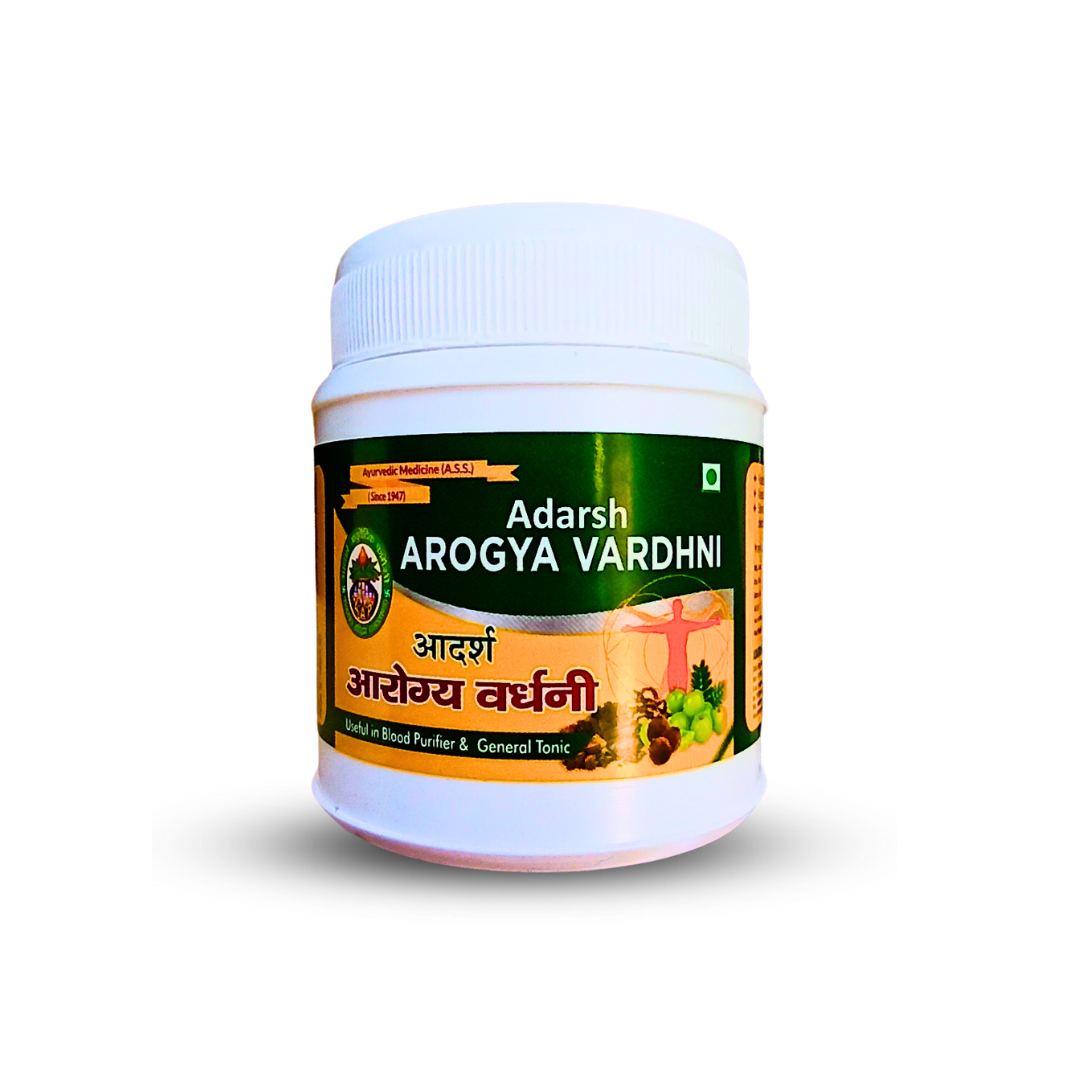









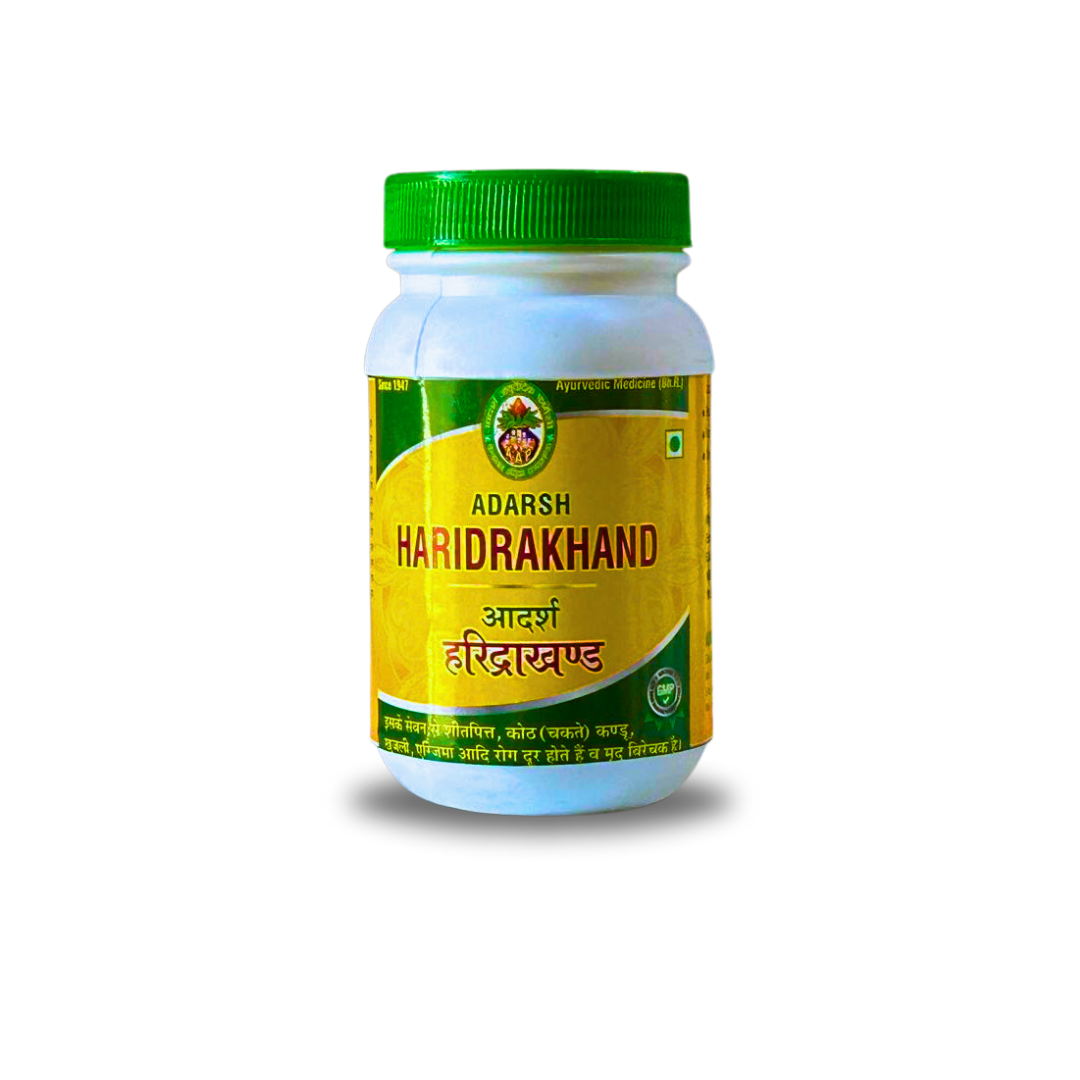
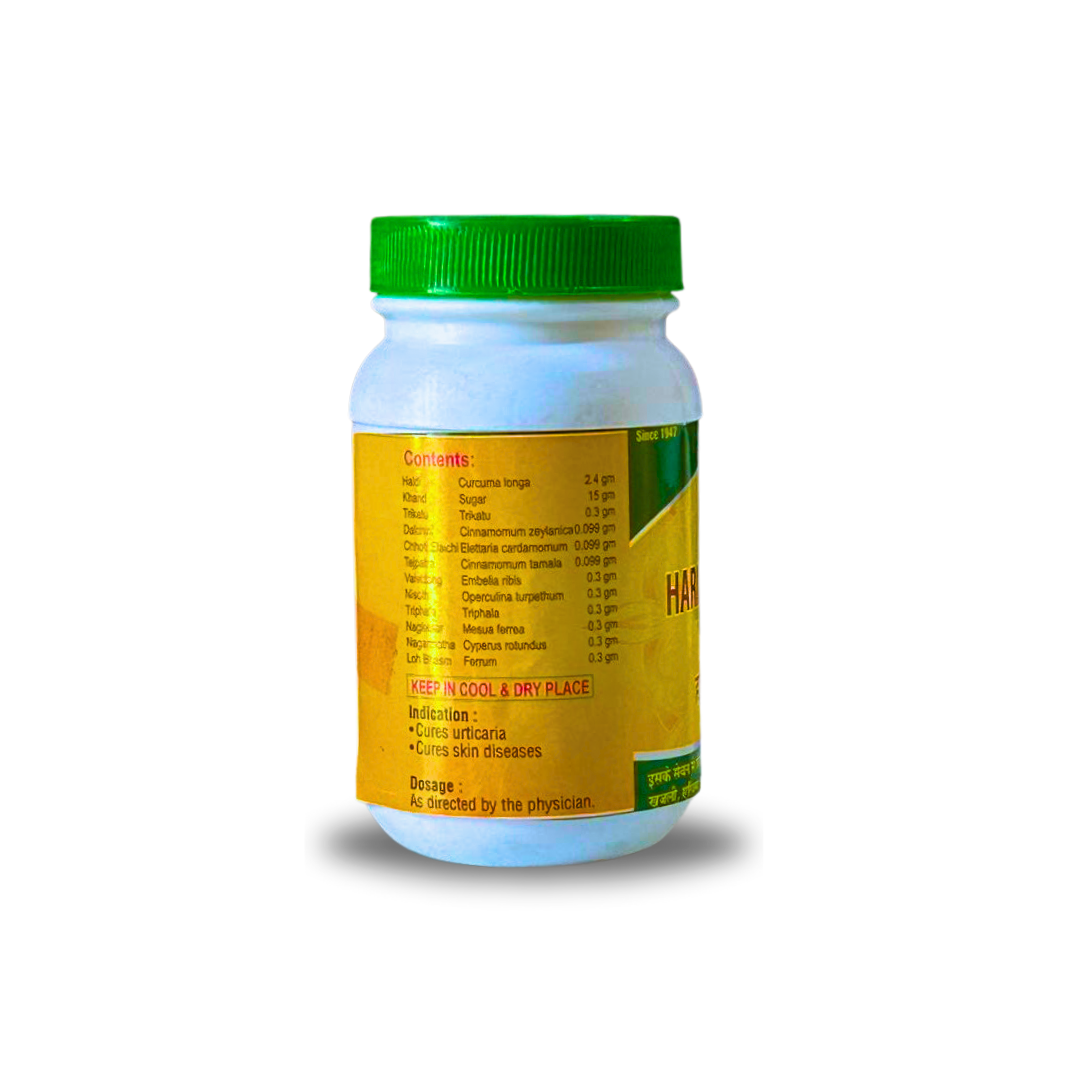






Reviews
There are no reviews yet.